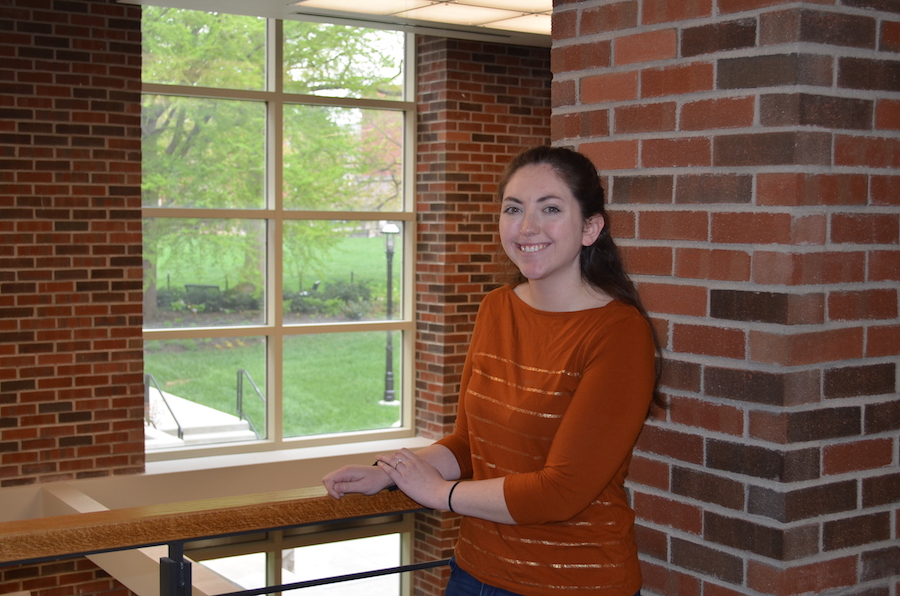May 07, 2019

Sarah Gebken reached her goal when the NSF GRFP announced its 2019 recipients recently, locking in annual $34,000 stipends and $12,000 for tuition and fees each year for three years. She’ll head to Washington University in St. Louis in the fall for the next step in her evolution as an engineer.
As a freshman, Mizzou Engineering undergraduate Sarah Gebken set a lofty goal — earn a spot National Science Foundation Graduate Research Fellowship Program her senior year. The NSF GRFP is the oldest fellowship in the nation supporting graduate research, and it provides funding for outstanding students pursuing research-based graduate degrees at accredited universities nationwide.
Needless to say, the program is highly selective. But Gebken — now a senior Biomedical, Biological and Chemical Engineering student — is highly impressive.
Gebken reached her goal when the NSF GRFP announced its 2019 recipients recently, locking in annual $34,000 stipends and $12,000 for tuition and fees each year for three years. She’ll head to Washington University in St. Louis in the fall for the next step in her evolution as an engineer.
“The NSF announced it around one in the morning,” Gebken recalled. “I stayed up pretty late that night. Looked for my name and found it, and I was so, so overwhelmed and excited. My fiancé was with me, and I started crying. He kept saying, ‘You did it.’”
The NSF GRFP selection was a culmination of four years of work for Gebken, whose work has focused on interdisciplinary efforts between engineering and life sciences. She has spent four years conducting undergraduate research in the lab of Chris Pires, a biological sciences professor and associate dean in the MU College of Arts and Science. His work focuses on plant evolutionary biology, and his lab was an excellent fit for a student interested in the intersection of engineering and biology.
She credited Pires, his lab and the McNair Scholars office for helping her perfect her proposal.
“It’s an amazing, amazing feeling. My lab has been super supportive and congratulatory,” Gebken said.
The research portion of her proposal dealt with the study of telomeres and the role they play in cell death. Telomeres, as Gebken explained, are to chromosomes what aglets are to shoelaces — that is, the cap on the end that holds everything in place. As cells split, these telomeres shorten, and the shorter they become, the more rapidly cells die. Gebken’s proposal dealt with finding ways to apply engineering to telomeres to elongate cell life.
The application also requires a community outreach component. Gebken has a keen interest in science policy that she plans to build on as part of her fellowship.
“In my case, I’m really interested in science policy — it’s a small passion for me. Last year, I was able to go to Washington D.C. for the annual Posters on the Hill to present to Congress,” she said. “I wanted to continue that on in grad school, and WashU has a program in place to do that kind of congressional outreach to attempt to get science policy passed.”
Four years ago, the NSF GRFP was a lofty goal. Now, it’s a dream achieved.
“When I finally got to my senior year, it was time to apply and do whatever I can to make this happen,” Gebken said. “It really does feel like the culmination of all the hard work I put into this one thing.”